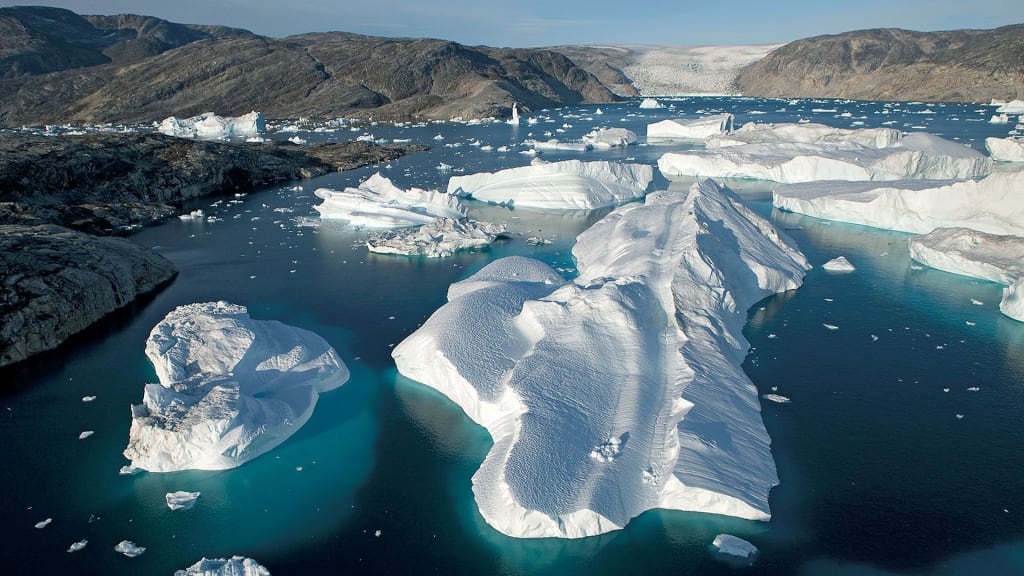"Climate Change: The Urgent Need for Collective Action to Save Our Planet"
Understanding the Consequences and Solutions for a Sustainable Future

Climate change refers to long-term shifts in temperatures and weather patterns. These shifts may be natural, but since the 1800s, human activities have been the main driver of climate change, primarily due to the burning of fossil fuels (like coal, oil and gas), which produces heat-trapping gases.Climate change is a global issue that is becoming increasingly urgent as we witness the consequences of our actions. It is caused by human activities such as burning fossil fuels, deforestation, and industrial processes that release greenhouse gases into the atmosphere. These gases trap heat, causing the planet's temperature to rise and resulting in a range of negative effects.
One of the most visible effects of climate change is the increase in extreme weather events such as hurricanes, floods, and droughts. These events not only cause damage to infrastructure and homes but also result in loss of life. For instance, the 2017 hurricane season in the Caribbean and the United States was one of the most devastating in history, causing an estimated $300 billion in damages and taking more than 3,000 lives. The frequency and intensity of such events are projected to increase as the planet continues to warm.
Another consequence of climate change is the melting of polar ice caps and glaciers, which is causing sea levels to rise. This can lead to flooding of coastal regions and displacement of millions of people. In addition, the acidification of oceans is affecting marine life, making it difficult for shellfish and other species to survive. Coral reefs, which are home to numerous species, are also at risk of extinction due to warming oceans.
Climate change also has implications for agriculture and food security. Changes in weather patterns and the increased frequency of extreme weather events can disrupt crop production, leading to food shortages and higher prices. This can have a devastating impact on the world's poorest populations, who are already vulnerable to food insecurity.
The urgent need for collective action to address climate change cannot be overstated. While individual actions such as reducing energy consumption and using public transport are important, they are not enough. It requires collective action from governments, businesses, and individuals to reduce greenhouse gas emissions and transition to a low-carbon economy.
Governments play a critical role in addressing climate change. They can set targets for reducing emissions, develop policies and regulations to encourage the transition to renewable energy sources, and invest in infrastructure to support the transition. The 2015 Paris Agreement, signed by 195 countries, is a significant step forward in global efforts to address climate change. The agreement aims to limit global warming to below 2 degrees Celsius and to pursue efforts to limit the increase to 1.5 degrees Celsius above pre-industrial levels. However, more needs to be done to ensure that these targets are met.
Businesses also have an important role to play in addressing climate change. They can invest in renewable energy, implement sustainable practices, and develop products and services that help to reduce greenhouse gas emissions. Many companies are already taking action, but more needs to be done to accelerate the transition to a low-carbon economy.
Individuals can also make a difference by reducing their carbon footprint through actions such as reducing energy consumption, using public transport, and eating a plant-based diet. While individual actions may seem small, they can add up to significant reductions in greenhouse gas emissions when taken collectively.
In conclusion, climate change is a urgent global issue that requires collective action to address. The consequences of inaction are too great to ignore, and we must take action now to reduce greenhouse gas emissions and transition to a low-carbon economy. Governments, businesses, and individuals all have a role to play in this effort, and by working together, we can ensure a sustainable future for generations to come.
About the Creator
Mohammad Mohib
Mohammad Mohib is my identity, and I write. You can support me by reading, liking, and subscribing to my work. If you believe there is a mistake in the essay, please contact me at [email protected]. I try to write the best essays I can.






Comments
There are no comments for this story
Be the first to respond and start the conversation.